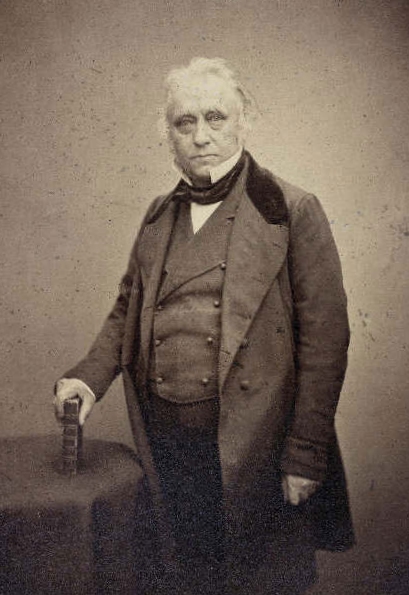Horatius, st. 26 & 27; this quote is often truncated to read:
Lays of Ancient Rome (1842)
Kontext: Then out spake brave Horatius,
The Captain of the Gate:
"To every man upon this earth
Death cometh soon or late.
And how can man die better
Than facing fearful odds,
For the ashes of his fathers,
And the temples of his gods, And for the tender mother
Who dandled him to rest,
And for the wife who nurses
His baby at her breast,
And for the holy maidens
Who feed the eternal flame,
To save them from false Sextus
That wrought the deed of shame?"
Thomas Babington Macaulay, 1. Baron Macaulay of Rothley: Zitate auf Englisch
Horatius, st. 32 & 33
Lays of Ancient Rome (1842)
Kontext: p>Then none was for a party,
Then all were for the state;
Then the rich man helped the poor,
And the poor man loved the great;
Then lands were fairly portioned,
Then spoils were fairly sold;
The Romans were like brothers
In the brave days of old.Now Roman is to Roman
More hateful than a foe;
And the Tribunes beard the high
and the fathers grind the low;
As we wax hot in faction,
In battle we wax cold;
And men fight not as they fought
In the brave days of old.</p
Horatius, st. 70
Lays of Ancient Rome (1842)
Kontext: When the goodman mends his armor,
And trims his helmet's plume;
When the goodwife's shuttle merrily
Goes flashing through the loom;
With weeping and with laughter
Still is the story told,
How well Horatius kept the bridge
In the brave days of old.
Vol. I, ch. 1
History of England (1849–1861)
“The gallery in which the reporters sit has become a fourth estate of the realm.”
On Hallam's Constitutional History (1828)
Vol. I, ch. 1
History of England (1849–1861)
Horatius, st. 50
Lays of Ancient Rome (1842)
“The great cause of revolutions is this, that while nations move onward, constitutions stand still.”
Speech on Parliamentary Reform. http://www.gutenberg.org/etext/2170 (1831)
“The highest proof of virtue is to possess boundless power without abusing it.”
Review of Aiken’s Life of Addison (1843)
According to Kenneth Owen Morgan (The Illustrated History of Britain (1984) p. 421) this was said by Macaulay in 1832. If so, he was quoting a letter written by Edmund Burke in 1777.
Attributed
' History https://www.gutenberg.org/files/55901/55901-h/55901-h.htm', Edinburgh Review (May 1828)
Speech on the Copyright Bill (5 February 1841)
Southey's Colloquies on Society (1830)
“The object of oratory alone is not truth, but persuasion.”
On the Athenian Orators http://books.google.com/books?id=qb0OAAAAYAAJ&q="The+object+of+oratory+alone+is+not+truth+but+persuasion"&pg=PA135#v=onepage (August 1824)
http://www.columbia.edu/itc/mealac/pritchett/00generallinks/macaulay/txt_commons_indiagovt_1833.html#13
Attributed
“There you [Sir Robert Peel] sit, doing penance for the disingenuousness of years.”
Speech in the House of Commons (14 April 1845)
On Hallam's Constitutional History
This quotation is commonly said to have been spoken by Macaulay during a speech to the British Parliament in 1835. Since Macaulay was in India at the time, it is more likely to have come from his Minute on Indian Education http://www.columbia.edu/itc/mealac/pritchett/00generallinks/macaulay/txt_minute_education_1835.html. However, these words do not appear in that text. According to Koenraad Elst http://koenraadelst.bharatvani.org/articles/hinduism/macaulay.html, these words were printed in The Awakening Ray, Vol. 4, No. 5, published by the Gnostic Center, preceded by: "His words were to the effect." Burjor Avari cites this misattribution as an example of "tampering with historical evidence" in India: The Ancient Past ISBN 9780415356169, pp. 19–20), writes: "No proof of this statement has been found in any of the volumes containing the writings and speeches of Macaulay. In a journal in which the extract appeared, the writer did not reproduce the exact wording of the Minutes, but merely paraphrased them, using the qualifying phrase: ‘His words were to the effect.:’ This is extremely mischievous, as numerous interpretations can be drawn from the Minutes." For a full discussion, see Koenraad Elst, The Argumentative Hindu (2012) Chapter 3
Misattributed
Quelle: Horatius, st. 1, Lays of Ancient Rome (1842)
